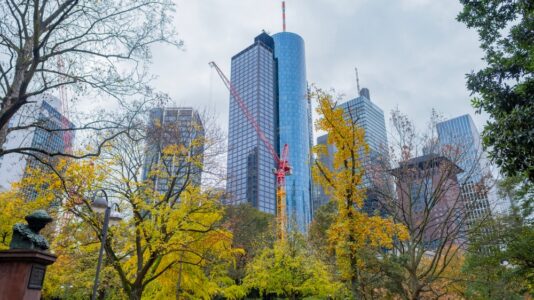As the Dutch government awaits a critical advice from the Council of State on its stricter asylum laws, Minister of Asylum and Migration Marjolein Faber of the Party for Freedom (PVV) has made it clear she has little intention of making significant adjustments to the proposed legislation.
“Maybe a point and a comma, but that’s it,” Faber stated confidently, despite admitting she has not yet read the advisory body’s report, which she plans to review over the weekend.
“I am convinced that my lawyers have made a good proposal. The advice is not binding — I can do what I want with it,” she added as cited by Nos.
The long-anticipated advice from the Council of State, the Netherlands’ highest advisory body, will be made public on Monday. It is understood to be critical of the proposed legislation and its findings could prove problematic to how plans are moved forward by the coalition government.
The government’s asylum reform package, described by PVV leader Geert Wilders as the “strictest asylum policy ever” in Dutch history, includes several key measures.
First, a dual-tier asylum system that distinguishes refugees based on the nature of their asylum claims, with stricter family reunification rules for those not fleeing direct persecution.
The automatic transition to permanent residency after five years would be abolished. Instead, asylum seekers would receive temporary permits and be required to return home once their countries are deemed safe.
Family reunification rights would be severely restricted with the proposals barring adult children and unmarried partners from joining asylum seekers in the Netherlands.
In addition, deportation powers would be increased and detention facilities constructed for faster returns of rejected asylum seekers; border controls within the Schengen Area would be reinstated; and dispersal laws regulating the distribution of asylum seekers across Dutch municipalities would be scrapped.
The PVV, led by Geert Wilders, is pushing for rapid adoption of the new laws. Wilders reiterated his stance on Thursday, insisting the laws must be introduced “quickly and unchanged.”
“Faber is right. We now have to continue quickly and make asylum laws stricter, so no more adjustments or opposition, we have the mandate of 2.5 million voters for this,” he added in a social media post on Friday.
His party initially attempted to push stricter asylum measures through emergency legislation but faced resistance from the New Social Contract (NSC) party. The coalition later compromised, agreeing to implement changes within the framework of existing asylum laws but on an urgent basis.
“I am in a hurry, we have lost a lot of time,” Faber remarked, emphasizing her determination to expedite the process. “They wanted emergency laws. So they get them. I will put it on urgently.”
Social Affairs Minister Eddy van Hijum (NSC) signaled that adjustments might still be necessary in light of the Council of State’s advice. “Making laws is one thing, but in practice, laws must also do what they are meant for,” Van Hijum said at the start of the Council of Ministers meeting. “That is limiting the inflow in this case. All parties in the cabinet agree on that.”
Despite the intentions of the Dutch center-right government, huge issues still remain in the country both socially and economically when it comes to the refugee crisis.
The number of work permits issued to asylum seekers quadrupled last year, driven by a ruling allowing full-time work for those in prolonged asylum procedures.
Last month, it was reported that the Dutch Immigration and Naturalization Service paid a record €36.8 million in penalty fees to migrants in 2024 due to processing delays amid a growing asylum backlog, increased legal challenges, and a surge in family reunification requests.
The cultural issues with newcomers also persist. Last month, Dutch railway operator Nederlandse Spoorwegen (NS) revealed it was contemplating removing the Maarheeze station in Brabant from its service routes due to the mounting costs of security measures required to address ongoing incidents involving residents of a nearby asylum reception center.
“Asylum seekers sitting on the benches drinking and harassing other passengers and NS staff. And you have asylum seekers who dodge the fare,” said a spokesperson for the rail operator.
Also in January, five underage asylum seekers were convicted by a court in Den Bosch for the gang rape of a 31-year-old homeless woman in a public park in the Dutch city of Helmond.
The attack occurred on Dec. 16, 2023, in the popular Burgemeester Geukerspark in the center of the city, sending shockwaves through the community and sparking fear among residents who had already expressed concerns about safety in the area.






